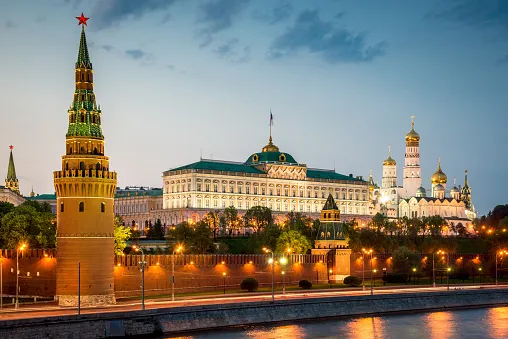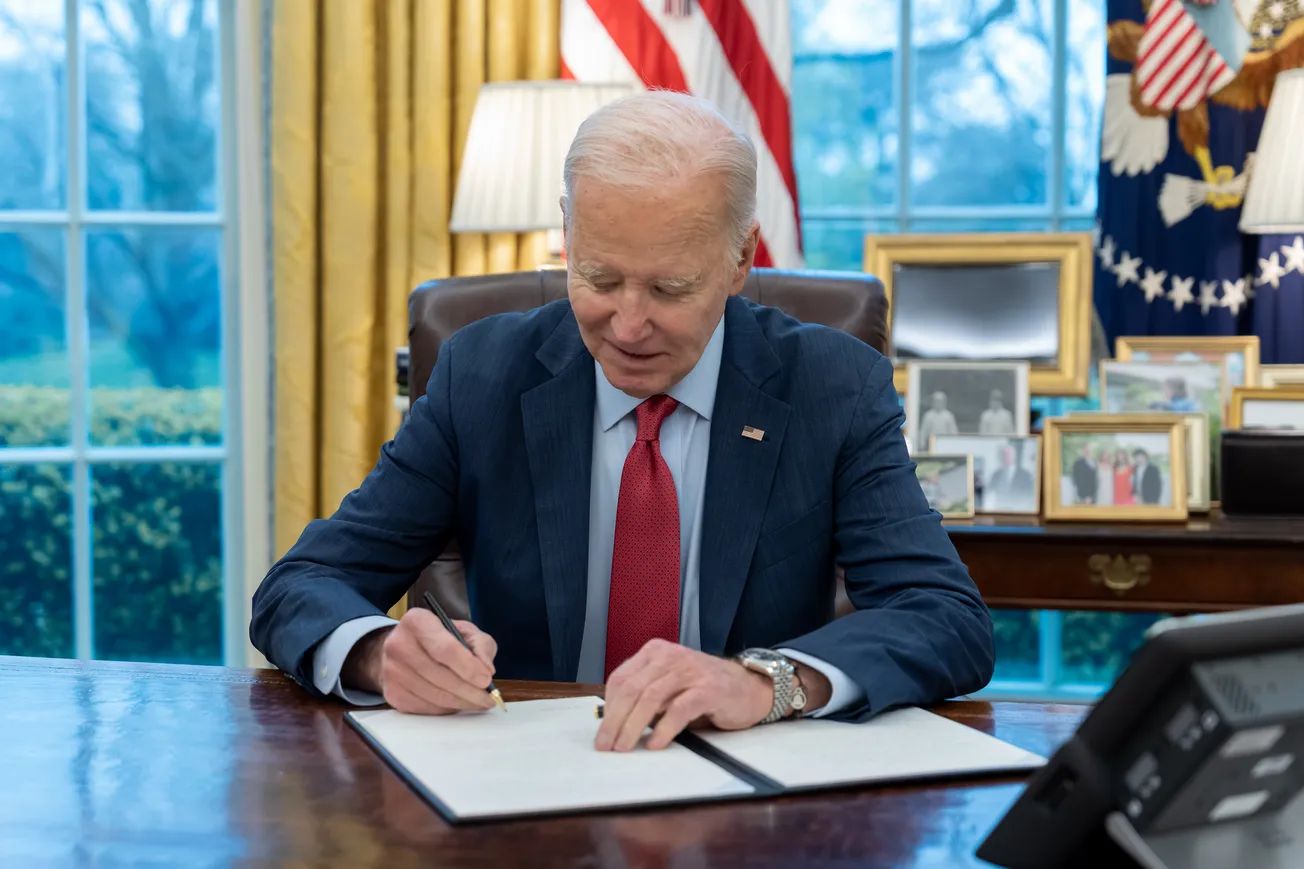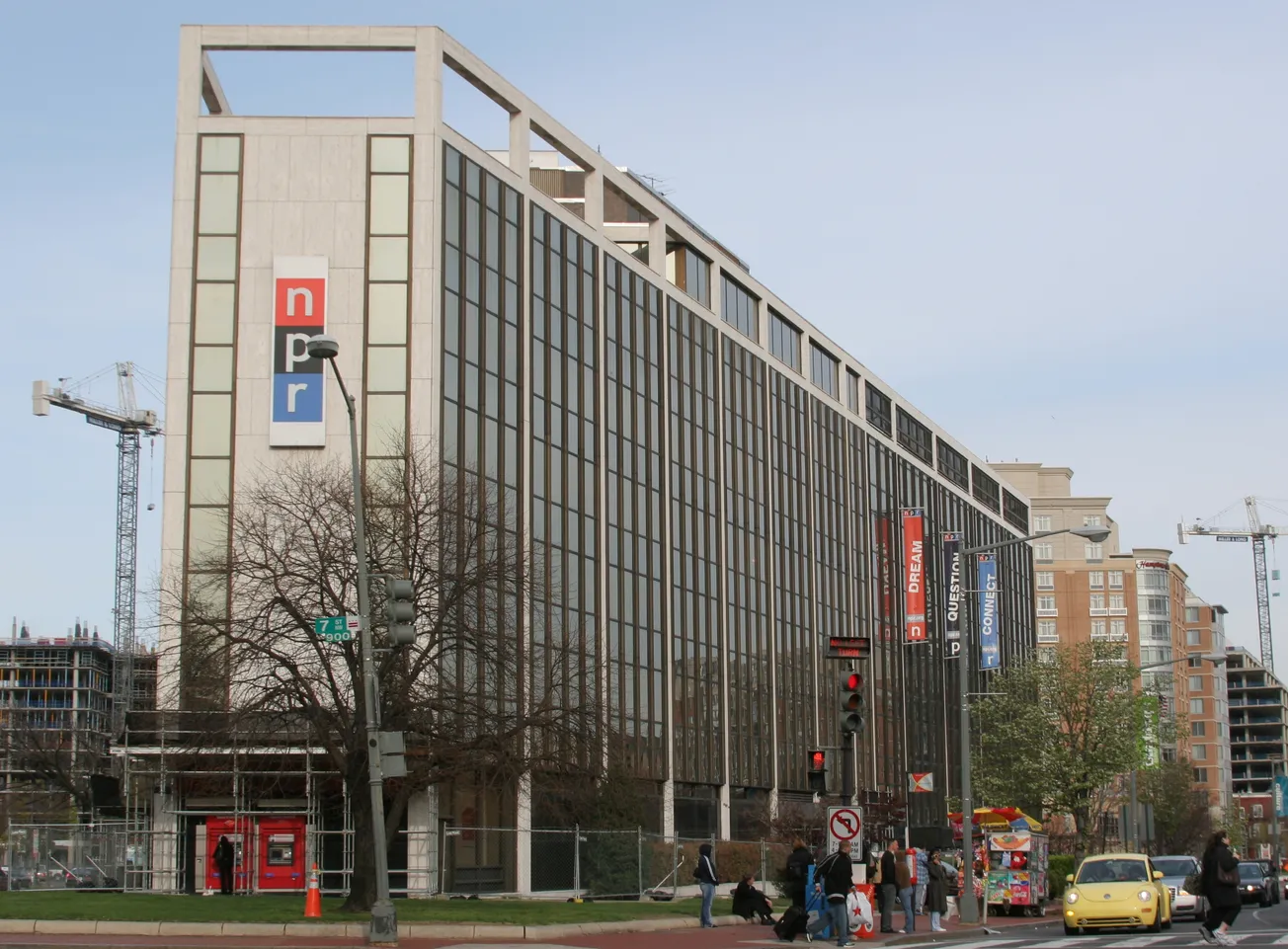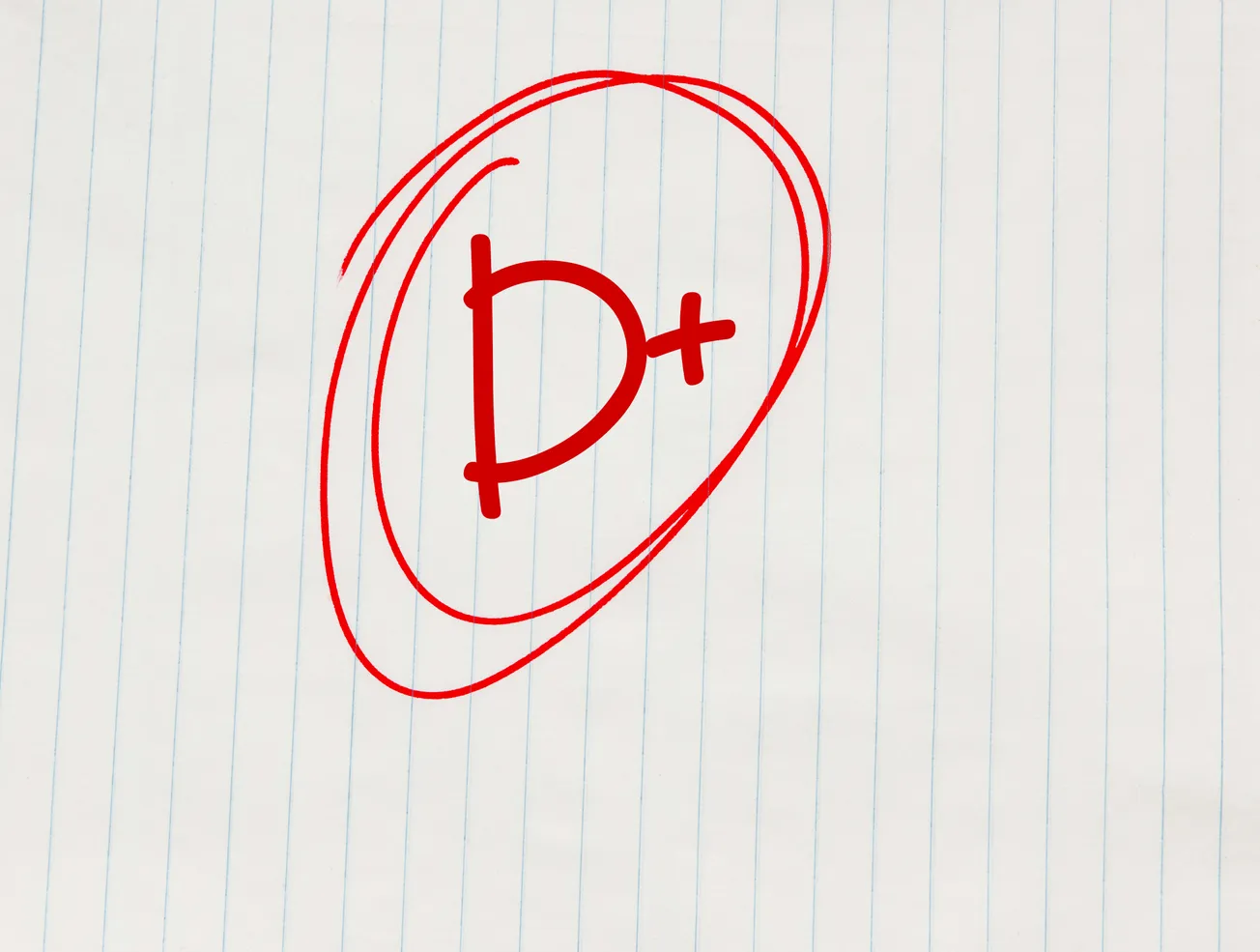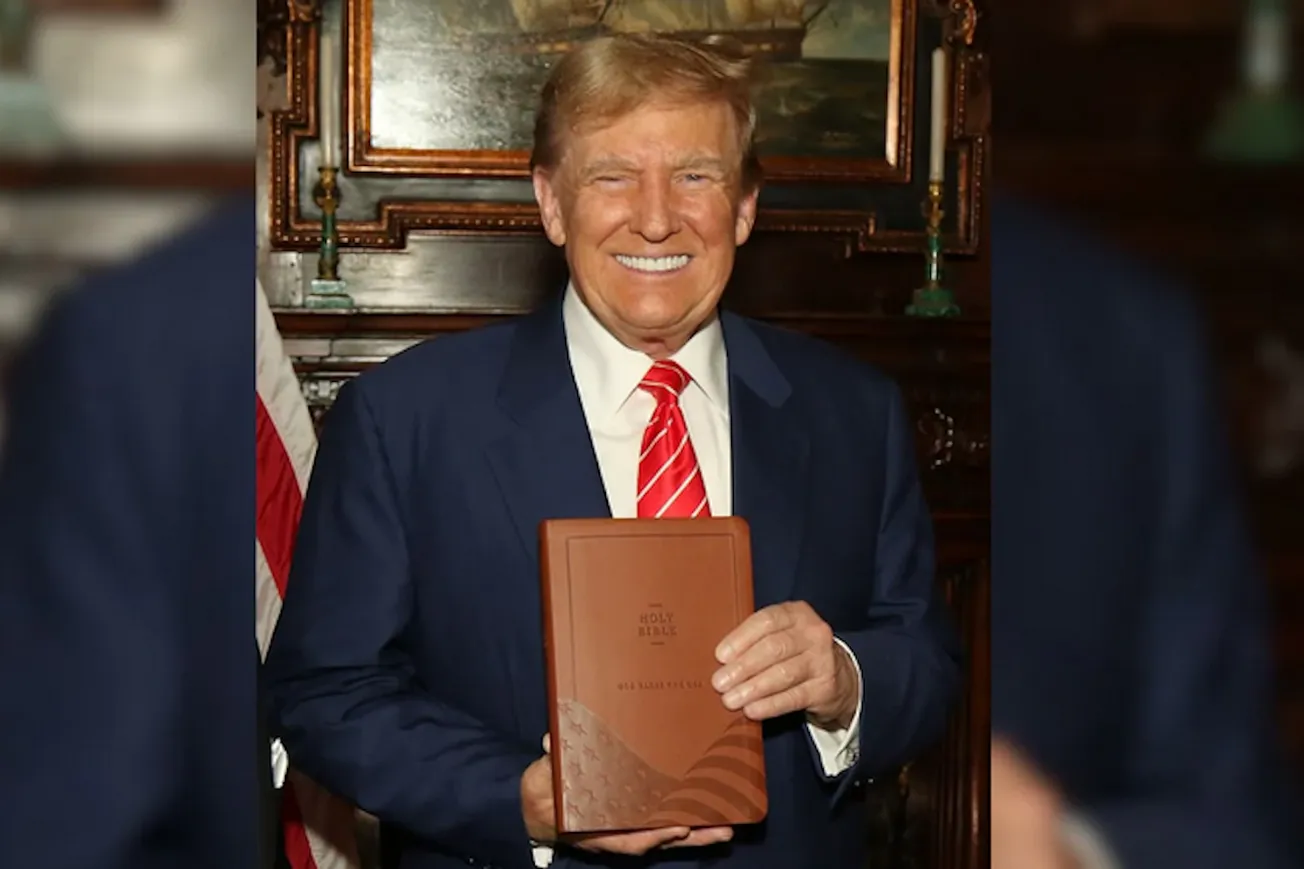Russia, the world’s largest country, is often mentioned in the U.S. media and usually not in a favorable light. Though it does not pose an existential threat to America, Moscow’s policies and actions significantly impact various aspects of American life, both on the political stage and in its society.
The TIPP Poll asked Americans just before the two presidents met if they considered Russia an immediate threat to the United States (within the next six months), a long-term threat to the United States (over six months), or not a threat at all. The response is given below:
- 27% - Short-term threat
- 40% - Long-term threat
- 13% - Not a threat
- 21% - Not sure
The percentages add to 101 due to rounding
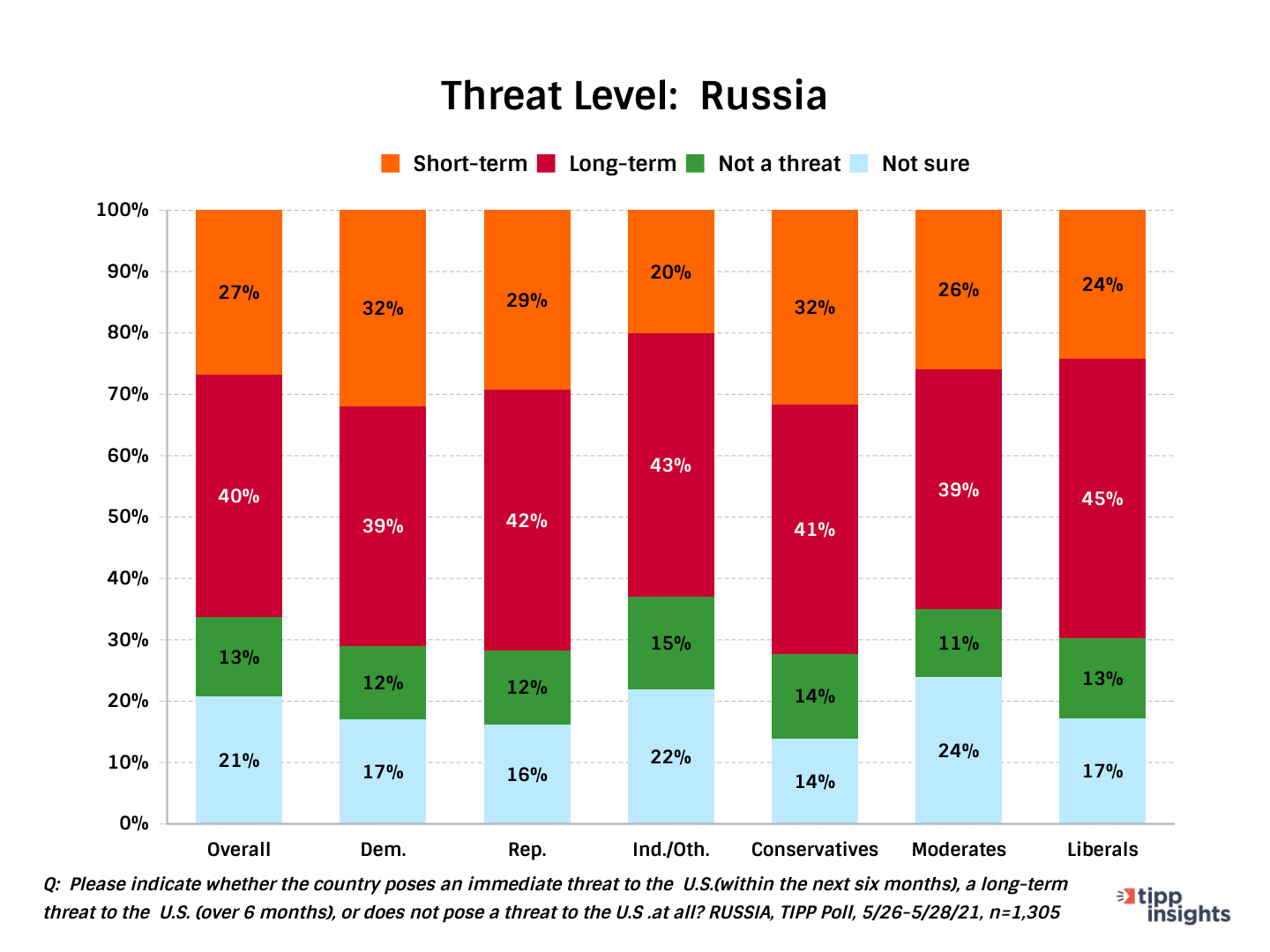
Volatile Borders
Russian annexations and provocative actions along its western border in Europe are a matter of grave concern on the military front. The country invaded Georgia in 2008 and annexed Crimea from Ukraine in 2014. Despite international criticism, Russia continues to occupy these territories and persists in militarizing the area.
Though thousands of miles away from U.S. borders, such actions have an impact on American lives. Russia claims its aggression is a means to counter NATO's influence in the region. And that is precisely why the U.S. may be forced to become involved. NATO members, and thereby the U.S., are bound by the treaty to "unite their efforts for collective defense and for the preservation of peace and security."
Russian military build-up along Lithuania and Poland borders, NATO member states, is viewed with unease. Last year, Ukraine joined NATO's "enhanced opportunity partner interoperability program." In short, should Russia attack one of its members, it could drag the United States into a war.
Virtual Battles
Political pundits believe Russia attempts to engage the U.S. in a "hybrid war." Beyond its military might, the Eurasian country is employing modern means to destabilize America.
Moscow may no longer be the superpower it was in the heydays of the USSR, but it is gaining notoriety as a hacking superpower. Many of the cyber attacks on sensitive American institutions and installations have been traced back to Russian hackers.
From the SolarWinds attacks to Russian interference in U.S. elections and the shutting down of the East Coast's pipeline, the U.S. authorities suspect a Russian administrative agenda in play.
Beyond compromising data and security, and of course, causing considerable losses to the affected parties, Russian cyber interference, especially in the elections, has managed to divide the country, shaking the very democratic principles it is built on.
Vexing Alliance
Russia's deepening relations with China, a Cold War-era competitor, could further trouble America. The two countries recently extended the China-Russia Treaty of Good-Neighborliness and Friendly Cooperation, which was first signed two decades ago.
Beijing's deteriorating relationship with the U.S. and other international players on human rights violations and its hegemonistic policies in the South China Sea had somewhat isolated the country on the world stage. Russian support could bolster China's confidence to pursue its unilateral agenda.
Villainous State
In recent years, Kremlin's crackdown on dissenting voices has gone up several notches. The scope for civic activism and constructive criticism has been steadily stifled by bringing into effect new and stringent laws. Many fear that Russia's human rights record has suffered under the autocratic leader, Putin, and that the country's regime is more oppressive than ever.
Despite international censure, political activists, critics of the government, anti-corruption campaigners, and other human rights advocates are often punished and imprisoned. Corruption is said to be rampant in the state.
Biden On Russia
More than half a year after taking office, President Biden met with the Russian leader, Putin, after meeting with the G-7 and NATO heads. According to reports, though no breakthroughs were expected, they discussed crucial cyber-attacks and election interference issues.
The meeting drew a lot of attention both in America and across the world. So far, Americans are slightly more pleased than displeased with Biden's dealings with Russia.
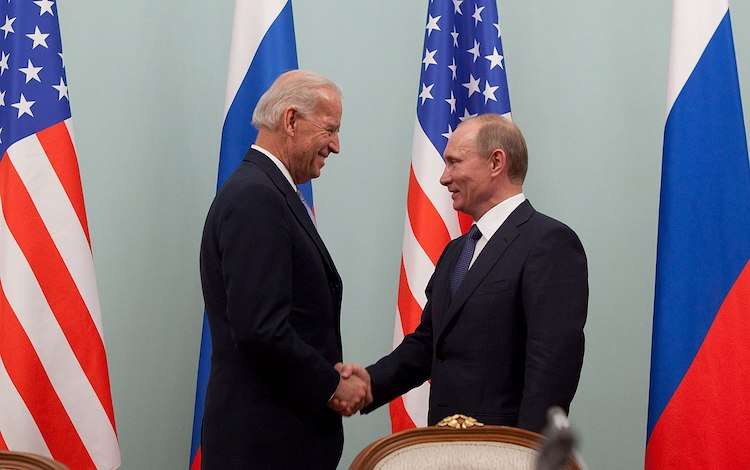
Here are the results from the TIPP Poll to the question: How would you grade Joe Biden's handling of Russia?
- 17% - Excellent
- 18% - Good
- 19% - Average
- 14% - Poor
- 18% - Unacceptable
- 14% - Not sure
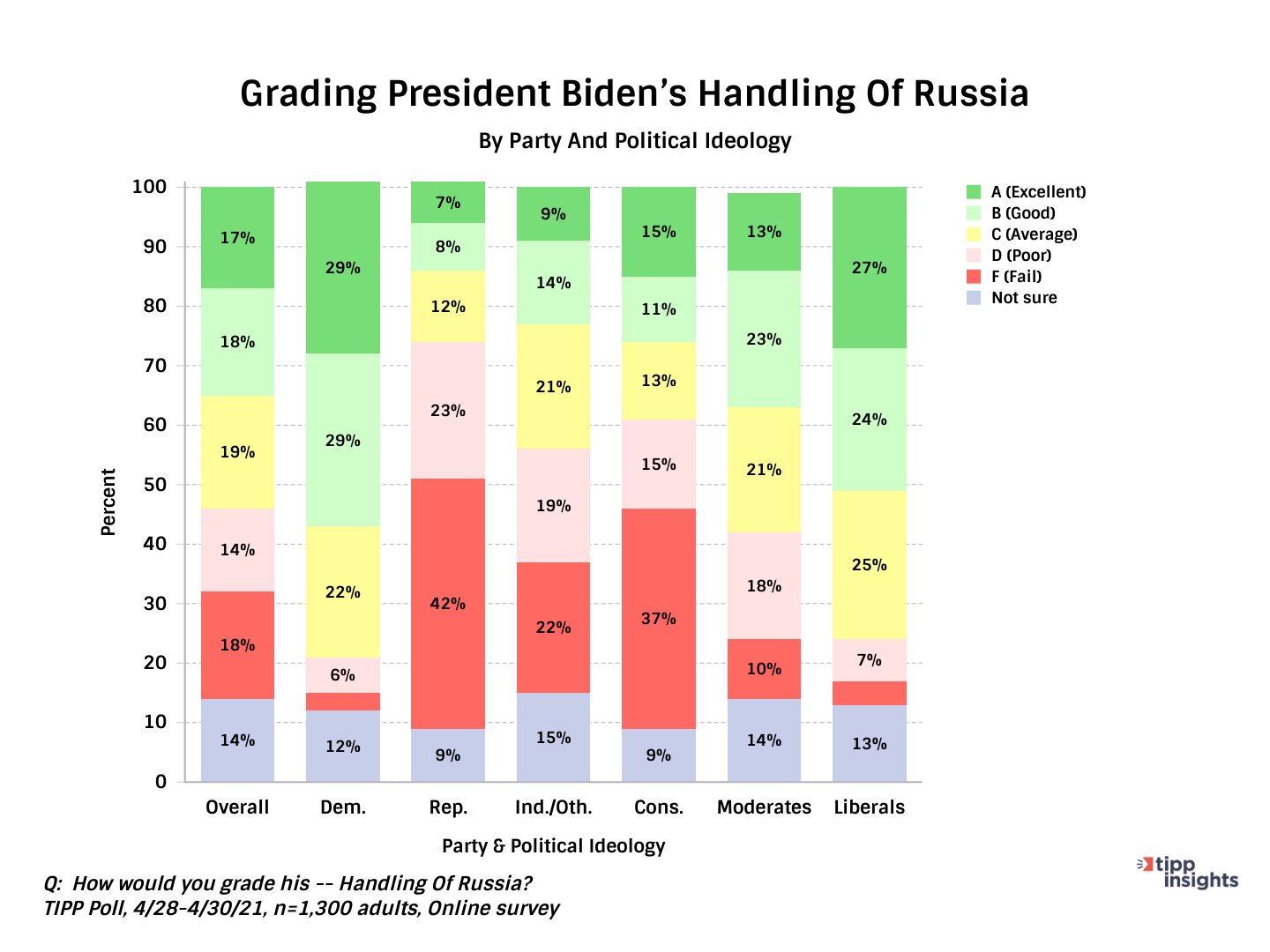
Of course, political leanings have much to do with approval or disapproval of Biden’s treatment of Russia. It would be wise to consider that a threat to America and the American way of life is an equal opportunity threat to Republicans, Democrats, and Independents, alike. It would be best to present a united front when dealing with those beyond the borders.
Raghavan Mayur edited the report.

